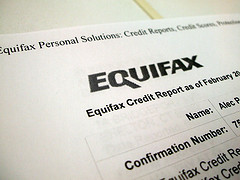The Pennsylvania Game Commission would like you to know that it is not legal to hunt deer in the Burrell Township Walmart parking lot, and, by extension, any other Walmart parking lot. [More]
knowing is half the battle

Bill Would Allow Consumers To Get Free Credit Score When Receiving Free Credit Reports
Right now, U.S. consumers can check each of their three credit reports — from TransUnion, Equifax, and Experian — once a year for free through AnnualCreditReport.com, but getting your actual credit score will probably cost you. Legislation introduced today seeks to remedy this issue. [More]

If You're Going To Eat A Carrot From Your Garden Be Sure It's Not Hemlock
It’s great that you’re a locavore and all that , but before you run out and eat stuff that is growing in your yard — look carefully and make sure it’s not hemlock — a poisonous plant that, according to Wikipedia, can kill you by the time you’re on about your 6th delicious leaf. (Ok, it takes longer than that, but you get the idea. It’s bad for you.) [More]

7 Things You Should Do Before & After Your Laptop Is Stolen
Considering that laptops are designed to be easily carried and stowed away — and considering just how much important personal and financial information is often stored on them — it’s no surprise that they’re such a target for thieves. But there are some simple things you should do now in case it’s stolen in the future. [More]

Half Of Consumers Are Not Aware Of Online Threats?
Ars Technica quotes a recent study by Microsoft that found that 58% of American consumers didn’t even know “online threats” existed. The study also found that of the ones that did know about said threats, 17% of them had fallen for some sort of Internet scam—and 81% of those people said it was their fault for opening suspicious emails or sending information to strange companies because they had a nice logo.

Should Consumers Be Notified Of Every Data Breach?
The report claims that it has “no recommendations,” but the language of the report suggests otherwise. Consumer advocates are taking issue with the GAO’s “not-a-recommendation” of a risk-assessment plan, in part because they believe that every consumer who has been the victim of a data breach should know about it, and also because the connection between data breaches and ID theft is difficult to assess, thus making it somewhat unbelievable that an accurate and useful risk-assessment program could be created.


